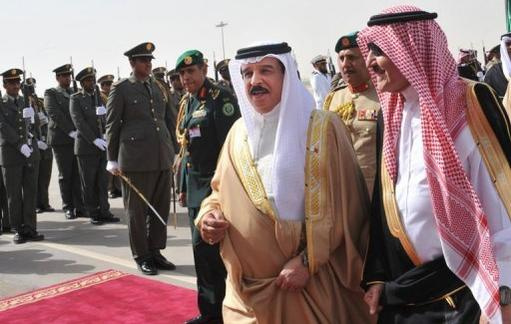How unity between Bahrain and Saudi Arabia affects Iran and the Persian Gulf

Since the establishment of the Persian Gulf Cooperation Council in support of the Saddam Hussein regime during the imposed war on Iran in 1981, Bahrain has had extensive cooperation with Saudi Arabia and the U.S. in supporting Iraq's actions in attacking ships heading toward Iranian ports, and in making the Persian Gulf insecure. This country has provided the U.S. military with parts of its territory for some years, and the US Navy's Fifth Fleet has been based in Bahrain’s Salman Port for decades. Since the separation of Bahrain from Iran, the country’s tribal government has mistreated the inhabitants of this island and therefore it has looked to links to Saudi Arabia and the US to govern the population with an iron fist and to be able to remove any concern about the overthrow of the Al-Khalifa family with the support of the US and Saudi Arabia.
Saudi Arabia has also always considered Bahrain as a part of its national security territory and believes that any change in the governmental structure in this country will have an important effect on the structure of the Saudi kingdom; therefore, it fully supports the Al-Khalifa family. Accordingly, with the construction of a large causeway, Saudi Arabia has linked Bahrain to its territory within the past few years so that it can send its military personnel to this island as it desires. The people of Bahrain are now facing the occupation of their land by the Saudi government and it is Saudi rulers that, with the US’ accord, prevent the establishment of democracy in Bahrain. The US thinks that democracy in Bahrain would mean that American bases in this country would be dismantled and this would force the US to also consider its bases in Saudi Arabia, Kuwait, Qatar, and the UAE as unsafe, and to finally end its military occupation of the Persian Gulf. The withdrawal of US military forces from the Persian Gulf would then translate to the superiority of the Islamic Republic of Iran’s Navy.
On the other hand, the people of Bahrain have always wanted to have good relations with Iran for historical reasons. The thought of this alone would cause great concern for Saudi Arabia because if the Al-Khalifa family is overthrown in Manama, not only will there be no unity between Saudi Arabia and Bahrain, but the Persian Gulf Cooperation Council will be dissolved and Saudi Arabia will fall behind in its competition with Iran. At any rate, the power struggle over the governance of the Persian Gulf, which is the most important geopolitical energy region in the world, still continues.
The US and Saudi Arabia think that if the people’s uprising in Bahrain bears fruit, not only will the people have control over their own destiny, but it will also lead to the spread of popular uprisings to other southern countries of the Persian Gulf, and this will disrupt the programs of these kingdoms in Persian Gulf countries and help regional countries take control of Persian Gulf oil and gas wells. Saudi Arabia, therefore, plans to introduce the idea of unity between Persian Gulf states so that it can annex Bahrain to its own land and ensure the continuity of the Al-Khalifa government. Hence, the unity plan between Bahrain and Saudi Arabia is a way to confront the change in the balance of power in the Persian Gulf and a way to protect monarchies and dictatorships in the region, and to ensure the continuation of US influence in the Persian Gulf.

